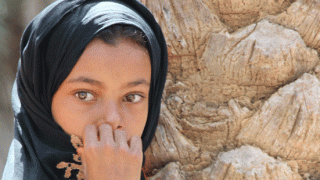On Jan. 4, 2007, Bahraini runner Mushir Salem Jawhar won a marathon in Israel, thus becoming the first athlete from an Arab country to participate in an Israeli sports tournament. The Bahrainis were not happy to see one of their nationals raising their country's flag in the Tiberias Sports Stadium. [The incident] was met with a wave of condemnation.
As a result, the Bahraini Athletics Federation removed Jawhar’s name from the federation’s lists, and the authorities decided to confiscate his passport and strip him of his Bahraini [citizenship]. The poor guy returned to Kenya, his country of origin, and to his real name, Leonard Moshiromaina, by which he was known in sports stadiums before he was brought to Bahrain as part of a campaign that aims to naturalize foreign athletes.
The "scandal" of the Kenyan/Bahraini runner did not put an end to the policy of athlete naturalization in Bahrain or other Gulf Arab states. Apart from requiring new naturalized athletes to not participate in sports competitions in Israel, Bahrain has not stopped the naturalization of athletes.
As we have seen in the London Olympics recently, 10 out of 13 male and female participants representing Bahrain were Kenyans and Ethiopians. To Bahraini sports officials, these athletes are the fastest and probably the cheapest way to raise the country’s flag in international arenas. As long as it is possible to obtain athletes from Africa and Asia, Bahraini officials will find no reason to provide the necessary infrastructure, services and training plans to prepare local athletes.
Bahraini officials perhaps also found it to be a prudent approach to rely on foreign athletes when they saw most Bahraini football players and other Bahraini athletes take part in the protests that swept the country at the height of the Pearl Roundabout uprising.
Athlete naturalization is offset by a more prevalent and dangerous [phenomenon] in the social fabric and political future of the Gulf countries: security naturalization. This is represented by granting Gulf citizenship to foreigners after they are recruiting into the armed forces, security services and police.
Traditionally, by virtue of relations that had developed during the era of the British protectorate, Pakistan and the Punjab region of India were the main exporters of security personnel to the Gulf countries, except Saudi Arabia. However, in recent years Yemen has had a growing role as an exporter of the human resources needed for the expansion of the armed forces and security services in all countries of the Gulf Cooperation Council (GCC).
Although security personnel are brought from several countries, each Gulf regime has its own preferences. In Bahrain, for example, Pakistanis — Pashtuns and Balochis — constitute the majority of security and police personnel. The Bahrain Defense Force relies on Yemenis and Syrians, while the National Guard relies on Moroccans and Pakistanis from Punjab.
The justification routinely given by the government regarding the naturalization of security personnel is the small population base. But this justification is not convincing if closely scrutinized, especially in the case of Bahrain, which suffers from chronic unemployment among young people. Yet the government imposes a strict ban on recruiting Shiite citizens in the armed forces and security services.
The security obsession in Bahrain explains part of the behavior of the [Al-Khalifa] ruling family, which considers the country as booty it acquired by the sword. Despite the passage of more than two centuries since the “conquest” [of Bahrain], the authorities are still acting as conquerors who fear that the people may turn against them. Therefore, the Al-Khalifa family believes that in order to retain its financial, social and political privileges, it must rely on foreign recruits and maintain the barrier it has built between it and the majority of the people.
It is not enough to point to the security mania and fear of the majority of the population to explain the prevalence of the same phenomenon in the remaining GCC countries. The ruling families in these countries act out of conviction that they own these countries — as exclusive and private properties — have the sole right to handle their affairs and are solely responsible for their security and protection.
This conviction is reflected in the practices witnessed in countries throughout the region — since the establishment of the administrative bodies necessary for regulating the export of oil seven decades ago — which made the chieftains of powerful tribes governors of states, but prevented their subjects from becoming citizens.
As the financial resources and political capacities of the ruling families increased since the oil boom in the 1970s, so did their efforts to keep their subjects as mere subjects, who receive [royal] donations but have no right to take part in decisions made by the ruling families, not to mention holding them accountable. Thus, we find that all the ruling families in the Gulf tighten their direct control on the financial resources, as well as the security and military capabilities, of their countries. In this context, security naturalization plays a key role in enabling the ruling families to do so without relying on their subjects.
The effectiveness of naturalized security personnel beyond the task of domestic repression has not yet been tested. No major military conflicts requiring the intervention of forces composed of foreign recruits have yet taken place in the Gulf region. Thus, the future security of the Gulf region remains uncertain.
There is no plausible reason why it should not be assumed that naturalized security personnel may [one day] take unexpected actions, as a naturalized athlete did five years ago by carrying the Bahraini flag in a sports stadium in Israel.



